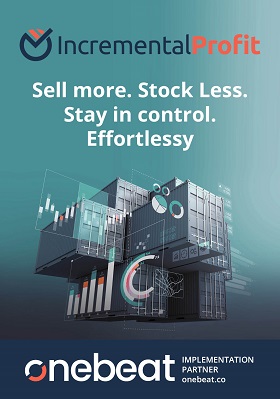As South Africa moves deeper into the digital retail decade, partnerships like SPAR and Uber Eats show how innovation can serve inclusion. They reveal how technology, often seen as disruptive, can rebuild social and economic infrastructure from the ground up.
From autonomous deliveries to AI-driven replenishment, from hyper-local logistics hubs to digital payment innovation, the next chapter of retail will belong to those who blend technology with trust, and data with community purpose.
To date, 275 SPAR stores are live on the Uber Eats app, with plans to exceed 800 nationwide, making it one of the largest and fastest scaling digital retail partnerships in the country. The collaboration merges Uber Eats’ global logistics and data intelligence with SPAR’s trusted local footprint and community-based franchise network, ensuring that more South Africans, from townships to cities, can access everyday essentials with a few taps on their phones.
This is more than a convenience story. It’s a blueprint for digitally inclusive commerce: one that empowers independent retailers, connects them to new customers, and creates income opportunities across the value chain.
It also ensures that current online trends are harnessed, as e-commerce turnover in SA surges towards the R130-billion mark in 2025, which is nearly 10% of the country’s total retail market. The Online Retail in South Africa 2025 report, produced by World Wide Worx in collaboration with Mastercard, Peach Payments and Ask Afrika, revealed that online retail grew by 35% in 2024, reaching R96-billion, representing 8% of total retail sales. Growth has continued through 2025 at an annualised rate of 38%, far outpacing physical retail, which increased by just 2.5% in 2024 and 1.6% by mid-2025. This is leading to a structural realignment of South African commerce, with digital platforms now embedded in everyday consumer behaviour.
Empowering Local Retailers, Digitally
As a deeply local retail network, SPAR’s roots are in community and roughly 80% of SPAR stores are independently owned, each a small business woven into its community. The Uber Eats partnership gives these entrepreneurs access to advanced logistics, digital visibility, and powerful analytics through tools that previously only major e-commerce players could afford.
By uniting digital delivery platforms with local ownership, SPAR and Uber Eats are democratising retail technology, ensuring that small retailers benefit from South Africa’s digital transformation rather than being left behind by it.
Beyond economics, this partnership also gives something priceless back to South Africans - time. Uber Eats data shows that South Africans collectively save over 12.7 million hours each year by ordering on the app. That’s time reinvested into families, work, and community that is a dividend of convenience that has measurable social value.
This redefinition of time, access, and mobility underscores a deeper truth: retail is no longer about where consumers shop; it’s about how seamlessly their needs are met across physical and digital touchpoints.
Omnichannel Retail: Where Physical and Digital Collide
Globally, the line between digital and in-store shopping is blurring. Retailers are using AI-driven inventory management, predictive data analytics, and geo-intelligence to anticipate demand before it happens. By 2030, experts predict that more than 40% of grocery sales in urban Africa will involve at least one digital interaction, from online discovery to delivery or in-store pickup.
SPAR’s evolving omnichannel strategy is an early prototype of that future. It’s not just enabling orders; it’s gathering the intelligence needed to plan local inventory better, reduce waste, optimise pricing, and enhance customer loyalty. The next horizon? Seamless interoperability across SPAR’s app ecosystem, personalised digital offers, and AI-assisted route optimisation for drivers.
This is what the future of retail looks like: frictionless, data-driven, inclusive, and sustainable.
Driving Economic Inclusion at Scale
The economic impact of digital retail ecosystems is profound. In 2023 alone, Uber contributed R17 billion to South Africa’s economy, equivalent to 3.5% of the transport, storage, and communication sector GDP. Uber Eats generated R1.6 billion in incremental value for restaurants, while drivers and delivery people on the platform earned on average 57% more than their next best alternative.
When combined with SPAR’s national reach and community anchor, this digital ecosystem creates a powerful multiplier effect that is stimulating local economies, fostering entrepreneurship, and bringing global innovation within reach of small-business owners.
The Road Ahead: Tech-Enabled Humanity
The Online Retail in SA report projects that by 2027, online retail will exceed R150-billion and account for 12% of total retail turnover, cementing its role as the structural driver of growth in South African commerce.
These trends are impressive and have been building momentum in recent years, according to McKinsey’s State of Grocery Retail 2024 report, South Africa’s online grocery segment has grown 54% annually since 2019. It is incredible to think that even these types of growth rates will be surpassed in the next few years.
In this new era, retailers and select strategic partners will not just deliver food, drinks, goods and groceries, but power the future of access, opportunity, and growth for millions.

By Blake Raubenheimer, Omnichannel Executive at SPAR Group







